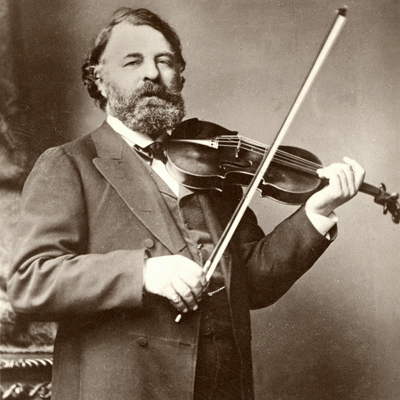
Joseph Joachim (1831-1907) was one of the most important violinists of the 19th century, networked with the greatest musicians of his time. Born in Hungary and of Jewish origin, he spent and worked for the most part of his life in Germany, so that interesting aspects arise regarding his identity. In 1869, he was appointed university director and professor at the Königliche Akademische Hochschule Berlin and embodied the German musical tradition with his interpretation of the music of Bach, Beethoven and Brahms. In an atmosphere of increasing anti-Semitism, Joseph Joachim remained loyal to other Jewish musicians, but was often confronted with prejudice and hostility. How does the life and work of Joachim as a musician and public figure overlap with his time, place and culture?
Schedule Day 3
Lectures
08.45 "From Spectacles to Romances. Reflections on Joseph Joachim's Violin Compositions, 1846-1850"
Katharina Uhde · Larry Todd
09.30 “On the Composer-Performer Phenomenon: A Carnal Approach to Virtuosity in the Music of Joseph Joachim and his Contemporaries"
Joe Davies (University of Oxford and Maynooth University)
10.15 "Zwischen Tradition, Ehrerbietung und Abgrenzung. Was Widmungskompositionen über die Bedeutung Joseph Böhms und Heinrich Wilhelm Ernsts für Joseph Joachims Selbstverständnis als Virtuose und Interpret und seine Identität als Komponist erzählen"
Christine Hoppe (Universität Göttingen)
11.30 "Between the Cipher and the Idée Fixe: Joachim, Berlioz, and the Lovestruck Psyche"
Tekla Babyak (Davis, CA)
12.15 "„Selbstbelehrung“: Die Kontrapunkt-Studien von Joseph Joachim und Johannes Brahms"
Wolfgang Sandberger (Brahms Institut, Musikhochschule Lübeck)
13.00 Schlusswort
Am Schloss Gottesaue 7 · 76131 Karlsruhe